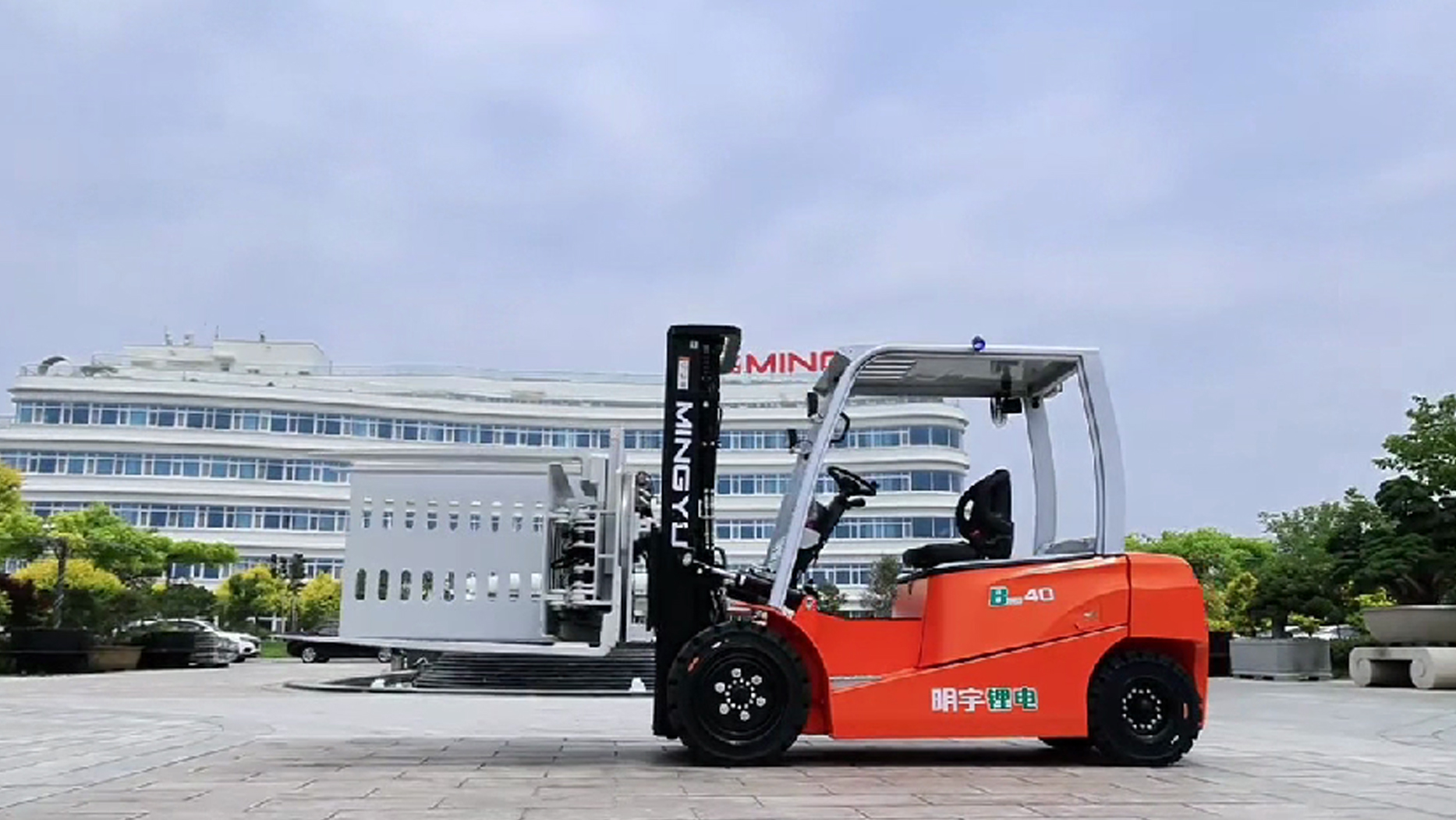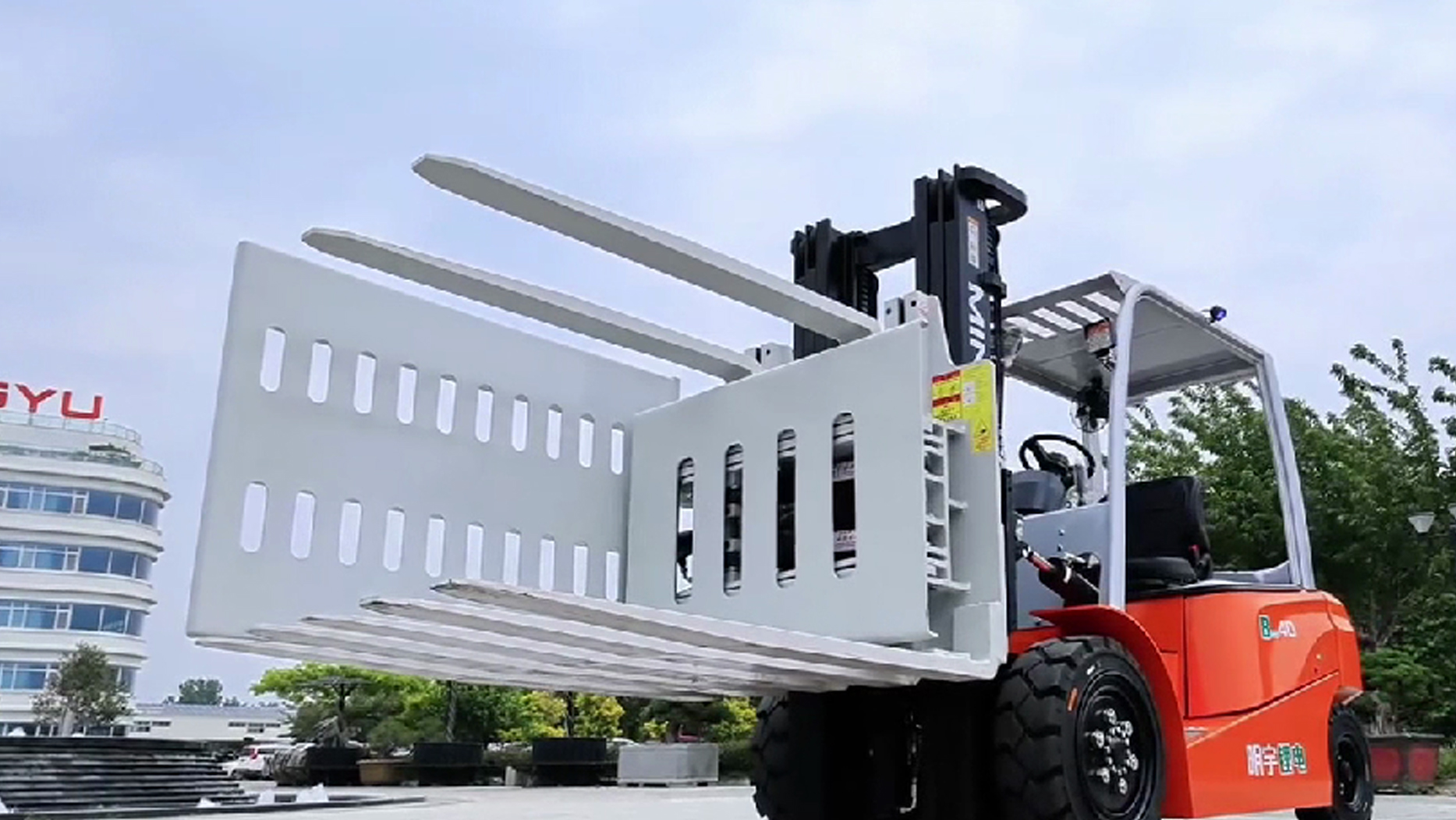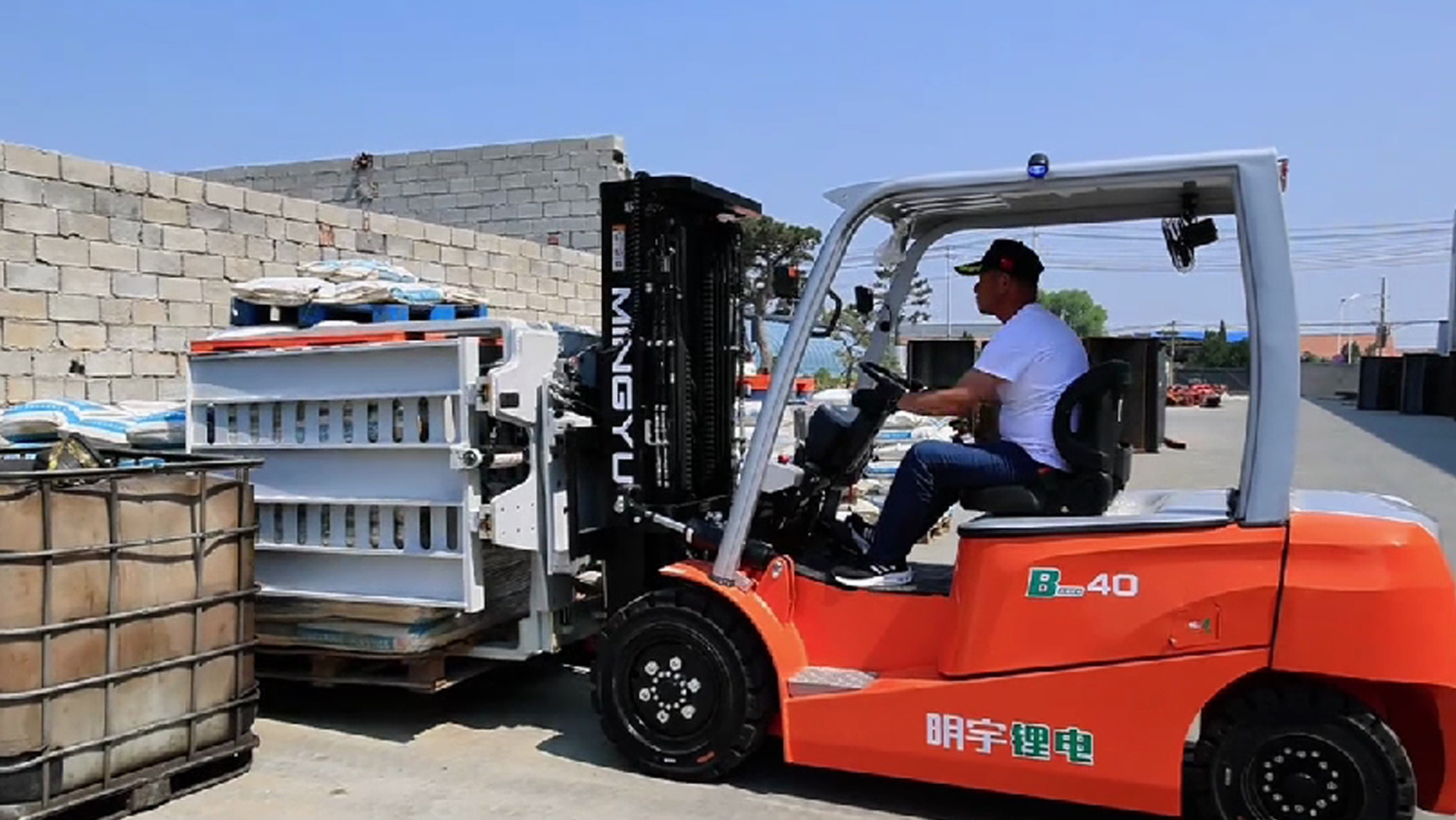This comprehensive guide will delve into the numerous reasons why electric forklifts are not just a viable option, but often the superior choice for your material handling needs, from environmental impact to total cost of ownership.
The Paradigm Shift: Why Electric is Leading the Way
The rapid adoption of electric forklifts is driven by a confluence of factors, pushing them to the forefront of the industry. Here's a breakdown of their key advantages:
1. Superior Environmental Performance: The Green Advantage
Zero Emissions at Point of Use: This is perhaps the most significant benefit. Electric forklifts produce zero exhaust emissions during operation. This makes them ideal for indoor environments like warehouses, food processing facilities, pharmaceutical plants, and retail spaces where air quality is paramount for employee health and product integrity. Eliminating harmful pollutants (like carbon monoxide, nitrogen oxides, and particulate matter) creates a safer and healthier workspace.
Reduced Carbon Footprint: When powered by renewable energy sources, the overall carbon footprint of an electric forklift is drastically lower than that of an internal combustion (IC) machine, aligning with global sustainability goals and corporate environmental initiatives.
Reduced Noise Pollution: Electric forklifts operate remarkably quietly compared to their IC counterparts. This significantly reduces noise levels in the workplace, leading to:
Improved communication among workers.
Reduced operator fatigue and stress.
A more pleasant and safer working environment, as ambient noise is lessened.

Lower Operating Costs: Driving Your Bottom Line
Lower "Fuel" Costs: Electricity is consistently less expensive per unit of energy than diesel, gasoline, or LPG. This translates into substantial savings on "fuel" costs over the lifespan of the forklift, often leading to a lower total cost of ownership (TCO) despite a potentially higher initial purchase price.
Significantly Reduced Maintenance: Electric forklifts have far fewer moving parts than IC forklifts. There's no engine, transmission, spark plugs, fuel filters, oil filters, or coolant system to maintain. This means:
Fewer parts to wear out or break down.
Less frequent and simpler maintenance intervals.
Reduced labor costs for servicing.
Lower consumption of fluids (no engine oil changes, for example, though hydraulic and gearbox oil are still needed).
Longer Lifespan: With proper maintenance, electric forklifts often have a longer operational lifespan than IC models, particularly in demanding applications, due to less vibration and fewer complex mechanical systems.
3. Enhanced Safety Features:
Improved Air Quality: As mentioned, the absence of exhaust fumes creates a healthier breathing environment.
Quieter Operation: Reduced noise allows operators to hear alarms, calls, and other workplace sounds more easily, contributing to better situational awareness.
Better Visibility: The absence of an LP tank at the rear of many electric counterbalance forklifts can improve rear visibility for the operator.
Controlled Performance: Electric motors offer precise control over speed and acceleration, which can enhance safety in tight spaces and during delicate load handling.
Regenerative Braking: Many electric forklifts utilize regenerative braking, which not only recharges the battery but also reduces wear and tear on the conventional brake system, leading to longer brake life and consistent stopping power.
 Superior Performance & Maneuverability:
Superior Performance & Maneuverability:
Instant Torque: Electric motors deliver instant and full torque from zero RPM. This provides smooth, powerful acceleration and consistent performance throughout the shift.
Precise Control: Electronic control systems allow for highly precise maneuvering, lifting, and tilting, crucial for working in congested areas and handling fragile loads.
Tighter Turning Radii: Many electric forklift designs, particularly 3-wheel models, offer exceptionally tight turning radii, enabling them to operate efficiently in narrower aisles and confined spaces, maximizing warehouse storage density.
Consistent Power: Unlike IC forklifts whose performance can degrade as fuel levels drop, electric forklifts provide consistent power output until the battery charge depletes, ensuring reliable operation throughout the work cycle.
Addressing Common Concerns & Modern Solutions
While electric forklifts offer immense advantages, some historical concerns are worth addressing, especially in light of recent technological advancements:
Initial Investment: Electric forklifts, particularly those equipped with advanced battery technology (like lithium-ion), can have a higher upfront purchase price than comparable IC models. However, this is often quickly offset by the lower operating and maintenance costs, leading to a superior TCO over the machine's lifespan.
Battery Charging & Runtime:
Lead-Acid Batteries: Traditional lead-acid batteries require dedicated charging areas, often 8 hours for charging and another 8 hours for cooling, which can be challenging for multi-shift operations. They also require periodic watering.
Lithium-Ion Batteries (The Game Changer): Modern lithium-ion (Li-ion) batteries have revolutionized electric forklift performance. They offer:
Faster Charging: Can be opportunity charged during breaks, eliminating the need for full 8-hour charge cycles.
Longer Runtimes: More energy dense, providing extended operational periods.
Zero Maintenance: No watering or equalization required.
Longer Lifespan: Typically last significantly longer than lead-acid batteries.
Improved Performance in Temperature Fluctuations: More resilient to temperature changes.
 Outdoor Use: While traditionally seen as indoor-only, advancements have led to ruggedized electric forklifts capable of handling some outdoor conditions, especially on paved or compacted surfaces. Manufacturers are increasingly offering models with enhanced sealing and protective features for mixed indoor/outdoor applications. For heavy-duty rough terrain, IC forklifts or specialized rough terrain electric models (if available for specific uses) may still be necessary.
Outdoor Use: While traditionally seen as indoor-only, advancements have led to ruggedized electric forklifts capable of handling some outdoor conditions, especially on paved or compacted surfaces. Manufacturers are increasingly offering models with enhanced sealing and protective features for mixed indoor/outdoor applications. For heavy-duty rough terrain, IC forklifts or specialized rough terrain electric models (if available for specific uses) may still be necessary.
The Future is Electric: Innovation Continues
The "goodness" of electric forklifts is not static; it's continually improving through ongoing innovation:
Hydrogen Fuel Cells: An emerging power source for forklifts, offering rapid refueling similar to gasoline and zero emissions, without the need for traditional battery charging infrastructure.
Smart Technology & Telematics: Integration with telematics systems allows for real-time monitoring of battery life, usage patterns, maintenance scheduling, and operator performance, optimizing fleet management.
Automation & Robotics: Electric platforms are foundational for the development of autonomous forklifts and automated guided vehicles (AGVs), driving the future of warehouse automation.
Enhanced Ergonomics: Continuous improvements in cab design, seating, and controls enhance operator comfort and reduce fatigue, boosting productivity.
Conclusion: Electric Forklifts – An Unrivaled Investment
So, to definitively answer, "Are electric forklifts good?" – the answer is an emphatic yes. For businesses prioritizing environmental responsibility, cost efficiency, workplace safety, and advanced performance, electric forklifts represent an unrivaled investment.
They offer a cleaner, quieter, and more economical alternative to traditional IC machines, with modern battery technologies like lithium-ion effectively addressing historical concerns about runtime and charging. As industries worldwide embrace sustainability and efficiency, electric forklifts are not just a good choice; they are fast becoming the intelligent and indispensable choice for a productive and future-proof material handling operation.
Post time:May.29.2025
